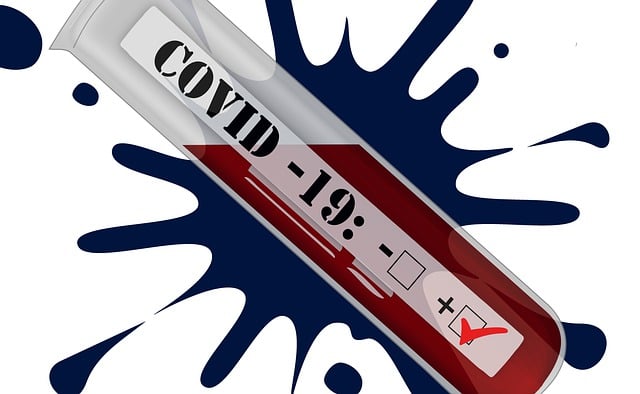Vitamin B12 deficiency, a common but overlooked health issue in the UK, affects a significant portion of the population. Recognizing subtle symptoms like fatigue, memory loss, and neurological issues is crucial for early detection through a vitamin B12 blood test. Key risk factors include age, dietary choices (esp. vegetarians/vegans), pernicious anemia, and intestinal problems. The UK Vitamin D Blood Test is an effective tool to screen for B12 deficiency alongside other vitamins, especially in at-risk groups. Prompt interpretation of test results enables healthcare professionals to initiate appropriate treatment, including dietary adjustments, supplements, or injections, with regular follow-up tests ensuring optimal management.
Vitamin B12 deficiency is a common but often overlooked health issue, which can lead to various neurological and hematological problems. This comprehensive guide explores how a UK Vitamin D Blood Test can aid in early detection of B12 deficiency. By understanding symptoms and risk factors, you can interpret test results accurately and take necessary steps for treatment. This article provides essential insights into managing your health effectively through proactive testing.
- Understanding Vitamin B12 Deficiency: Symptoms and Risk Factors
- How UK Vitamin D Blood Tests Can Help Detect B12 Deficiency
- Interpreting Test Results and Next Steps for Treatment
Understanding Vitamin B12 Deficiency: Symptoms and Risk Factors
Vitamin B12 deficiency is a common but often overlooked health issue, especially in the UK where it affects a significant portion of the population. Understanding this condition is crucial for early detection and effective management. The symptoms can vary widely, including fatigue, weakness, memory loss, and even neurological problems like numbness or tingling in the hands and feet. These symptoms may be subtle and easily overlooked, making a vitamin B12 blood test an essential tool for diagnosis.
Several risk factors contribute to the development of this deficiency, particularly age and dietary habits. As individuals grow older, their bodies become less efficient at absorbing B12 from food. Additionally, vegetarians and vegans are at a higher risk due to the primarily animal-based sources of this vitamin. Other potential factors include certain medical conditions like pernicious anemia and intestinal issues that impair nutrient absorption. Regular UK Vitamin D Blood Test screenings can play a vital role in identifying B12 deficiency, allowing for timely intervention and prevention of more severe complications.
How UK Vitamin D Blood Tests Can Help Detect B12 Deficiency
In the UK, a simple solution for detecting vitamin B12 deficiency is through the use of Vitamin D blood tests. These tests are particularly useful as they can identify low levels of B12 alongside deficiencies in other essential vitamins, such as Vitamin D itself. By combining these two key nutrients into one test, healthcare professionals gain valuable insights into an individual’s overall nutritional status.
The UK Vitamin D Blood Test is a non-invasive method that measures the concentration of vitamin D in the blood. Low levels of vitamin D are often associated with B12 deficiency as they share common risk factors, including age, diet, and certain medical conditions. By detecting low vitamin D levels, healthcare providers can prompt further investigation into potential B12 deficiency, especially in individuals who may be at higher risk, such as the elderly or those with digestive issues that affect nutrient absorption.
Interpreting Test Results and Next Steps for Treatment
Interpreting your UK Vitamin B12 Blood Test results is crucial for understanding your health status and planning treatment. If the test indicates a deficiency, it’s important to discuss the findings with your healthcare provider. They will consider factors like your symptoms, medical history, and lifestyle to determine the underlying cause. A vitamin B12 deficiency can often be treated effectively with dietary changes, supplements, or injections, depending on the severity.
The next steps for treatment may involve adjusting your diet to include more B12-rich foods such as meat, fish, dairy products, and fortified cereals. Your doctor might also recommend taking oral supplements or receiving vitamin B12 injections to quickly restore levels. Regular follow-up tests can help monitor your B12 status and ensure the treatment is effective.
In light of the above, understanding vitamin B12 deficiency and its risk factors is paramount. The UK Vitamin D blood test serves as a valuable tool in detecting this condition, enabling prompt interpretation of results and subsequent treatment. By addressing B12 deficiency early, individuals can avoid potential complications and ensure optimal health.
